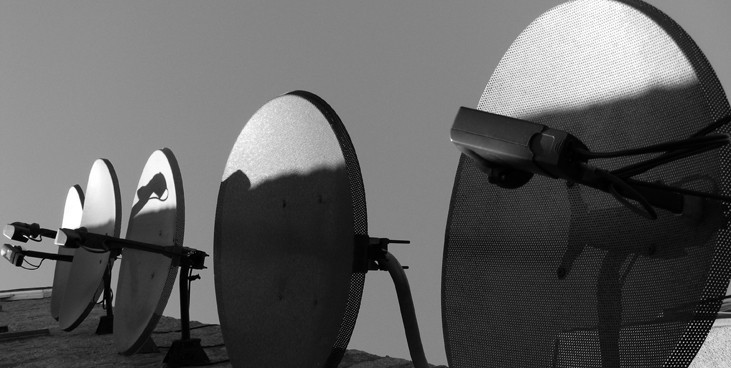LEARNING OBJECTIVES
By the end of this lesson, you will be able to:
- Recognize characteristics of parabolas.
- Understand how the graph of a parabola is related to its quadratic function.
- Determine a quadratic function’s minimum or maximum value.
- Solve problems involving a quadratic function’s minimum or maximum value.

Figure 1. An array of satellite dishes. (credit: Matthew Colvin de Valle, Flickr)
Curved antennas, such as the ones shown in the photo, are commonly used to focus microwaves and radio waves to transmit television and telephone signals, as well as satellite and spacecraft communication. The cross-section of the antenna is in the shape of a parabola, which can be described by a quadratic function.
We will see that quadratic functions can be written in the form
where a, b, and c are real numbers and [latex]a\ne 0.[/latex] This is called the general form of a quadratic equation.
In this section, we will investigate quadratic functions, which frequently model problems involving area and projectile motion.
Candela Citations
- Definition. Authored by: Ernesto D. Calleros. License: CC BY: Attribution
- Precalculus. Authored by: Jay Abramson, et al.. Provided by: OpenStax. Located at: http://cnx.org/contents/fd53eae1-fa23-47c7-bb1b-972349835c3c@5.175. License: CC BY: Attribution. License Terms: Download For Free at : http://cnx.org/contents/fd53eae1-fa23-47c7-bb1b-972349835c3c@5.175.